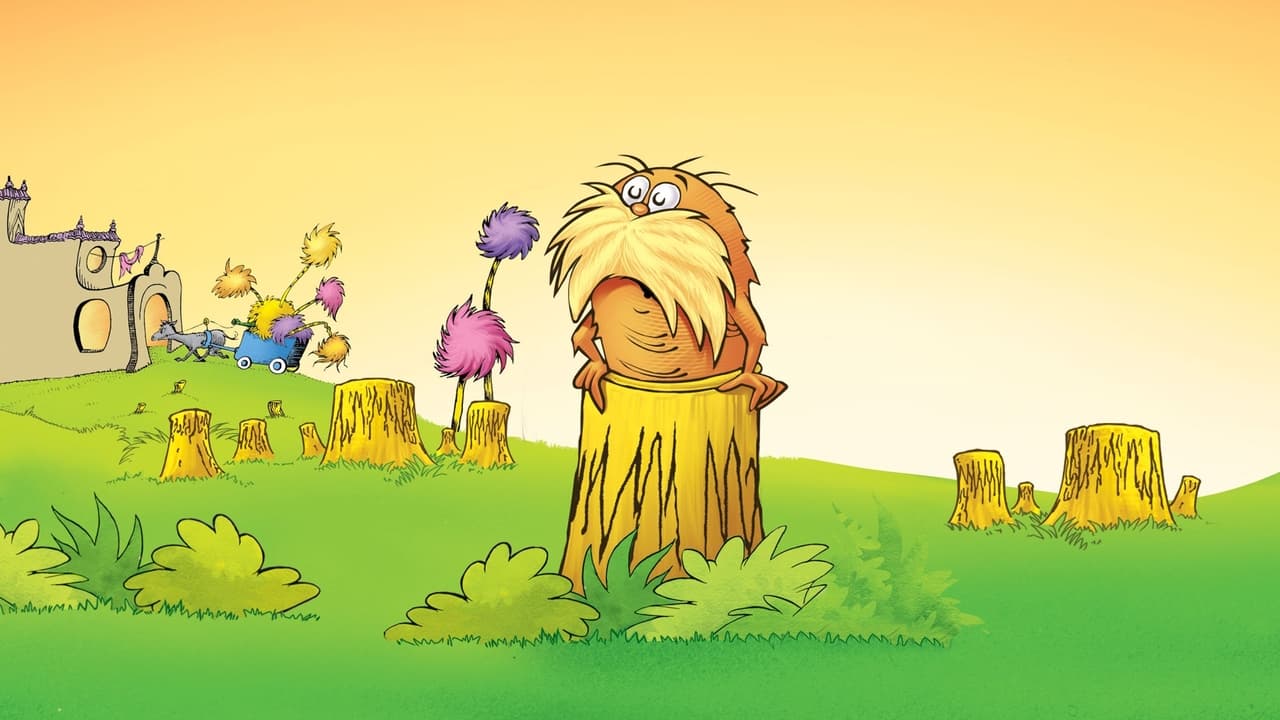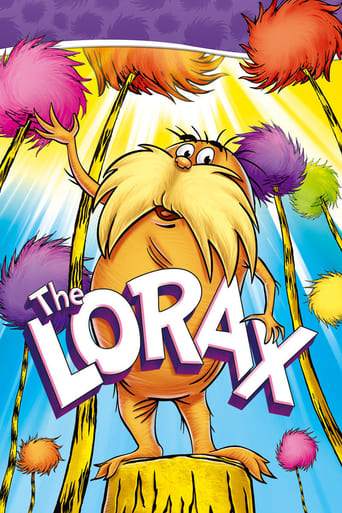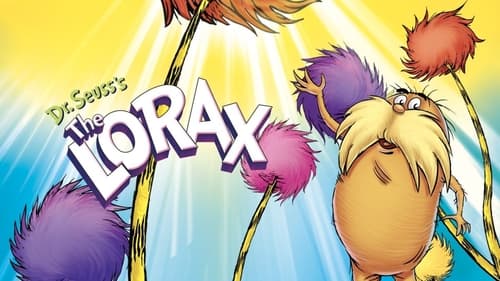


Let's compare this to the 2012 movie, shall we:Budget: 1972 version: Probably under $1,0002012 version: $70 millionRuntime: 1972 version: 25 mins2012 version: 1 hour 35 minsAnimation: 1972 Version: Hand-drawn2012 version: Computer animatedWell, strangely enough, with enough effort, a movie with 1/70,000th the budget of a kid's sellout movie, surpasses it in every way imaginable. The 1972 version really has a message. While the 2012 version seems to avoid the actual 'we need to help the environment' theme, the 1972 version shows that we are not doing enough to do so. It has a meaning, and therefore gives everyone a reason to watch it. Watching it did not make you feel like you were being subjected to an advertising sellout and made you really think about the environment as a whole. I think the 1972 version is a brilliant masterpiece, that did justice to Dr Seuss' work. The 2012 version however, stuck the Lorax on a Mazda advertisement. This just shows how much the 1972 version respected the source material compared to the 2012 version, and why it remains a masterpiece.
... View MoreDr. Seuss is one of my favorite authors, the thing I love about his books are the accessibility they contain, they bring up some complex and serious issues by say a lot from the amount of satire they contain though simplicity. "The Lorax" has always been my second favorite Seuss story because to me it's the darkest, but has good messages we can hear loud and clear.The animation is great just like in the book it has that surrealistic style to it, creating an alternate world that is one step similar to our own reality but also one step away. The music is also good though not quite memorable at least in my book. And of course the writing is on the mark, all the lines and quotes from the original book are intact.But of course the strength of the film truly is in the story and the conflicting characters the Once-ler and The Lorax acted with perfection by Bob Holt who does both voices you really think two people are doing it. The conflict is intact, we are of course on the Lorax's side because we know he's right however we can't help at time emphasizes with the Once-Ler's side of things as well because even we carry those kinds of desires of progress.Just as the story was relevant to the 70's decade when pollution really started to become a major issue, it's relevant to now with the problems were having now with our resources and the rush rush counterculture we've created. I like how in the story we see how the line between needs and wants blurs because everyone from the constant advertising and what goes on around them, they've all been manipulated into thinking the Thneeds are what they need even though in reality the Thnneds really a luxury by their nature and only has so many uses mainly as clothing, other uses they present are just plain useless like using it as a toothbrush holder and we see a photo and it can barely hold it or even as some kinda soup, yuck.What disturbs me the most about the story is the behavior of the Once-Ler whom at first was like just a typical idealist whom has what seemed to be a harmless idea. But then of course as he becomes more successful we see his capitalistic pursuit has turned into a madness and addition which even his own conscious is too weak to fight against. But we also see that he's really not happy, it kinda goes with that saying how money doesn't by you happiness, from his talks with the Lorax even though he claims he's basking in glory, you can tell from his voice he's not. And when you think about it the Once-Ler really doesn't have a life, there is no friends or girlfriend (well it is a storybook story after all)all he really has is just a lifestyle, and the tragedy is like all lifestyles it's not forever because as another saying goes "business loves no one back".And I even like the sense of emotionality, you really do feel for the Lorax and all the animals as things just get worse. We see that the capitalistic ventures have became a dangerous narcotic, their so concerned with making a big fast profit they ignore how much damage they've done to the very things that not just provide the Thneeds for them but that sustain their lives. It's disheartening seeing a once beautiful and plentiful enviorment become just an ugly lifeless wasteland, but once we see that final tree get chopped off it made my heart sink because I knew their fate was sealed. The ending is sad but it has a sense of hope.The message in the story isn't to take better care of our enviorment as well as taking action now before it's too late, but that we have to exercise more responsibility in the business of providing for people's needs otherwise there will be nothing left.A beautiful health enviorment truly is what we need because it's what always gives us a better tomorrow.Rating: 4 stars
... View MoreWise old forest creature the Lorax (beautifully voiced by Bob Holt) tries to warn greedy and ruthless industrialist the Once-ler (also voiced by Holt with suitably sinister aplomb) about the potential harm of chopping down all the trees in the woods he's the self-appointed protector of. Alas, the Once-ler doesn't listen to the Lorax's warning and eventually lots of severe irreparable harm is wrought on the woods. This TV special manages to persuasively articulate a pertinent ecological message in a humorous, yet still relevant and respectful way without ever becoming too preachy or heavy-handed. Yes, we still do have the trademark smart and witty wordplay, a wealth of lively and engaging songs, colorful and creative animation, and a certain playful air, but underneath all the deceptive silliness is a totally serious and heartfelt concern about the well being of the earth as well as a still timely and topical statement about the evils of deforestation, the dark side of so-called progress, and the savage damage beget by corporate avarice and amorality run dangerously amok. Indeed, the environmental havoc the Once-ler brings upon the land with his factory is profoundly grim and depressing to behold. The fact that this TV special's central message hasn't dated a bit speaks volumes about its considerable artistic merit. An excellent and admirable program.
... View MoreSince I was a small child I have always enjoyed this little political message about the fallacy of not having a suitable rights-enforcement body ensuring property rights of individuals in their jurisdictional area are upheld. The Lorax was clearly the sole caretaker/maintainer/improver of the land, fauna and flora and therefore the proper owner of the idyllic setting the Onceler came across. Rather than attempting to negotiate agreeable use of the land and resources in exchange for recompense, the Onceler just moved his gang in to systematically steal and destroy the Lorax's property (this is revealed in the first 5 minutes of the film). Clearly this was an anarchic state with no specific judiciary or security forces to enforce property rights. The Lorax, lacking independent power to protect his property had to resort to negotiation, which the Onceler - with greater numbers, finances, and physical resources, and in the absence of any property rights enforcement bodies - was able to safely ignore. My children love this story. They can appreciate that human rights include property rights, and they see that things would have been better for both the Lorax and the Onceler if a properly constructed rights-enforcing framework had been in place at the outset. Alternately the Lorax could merely have been in possession of a semi-automatic weapon.
... View More